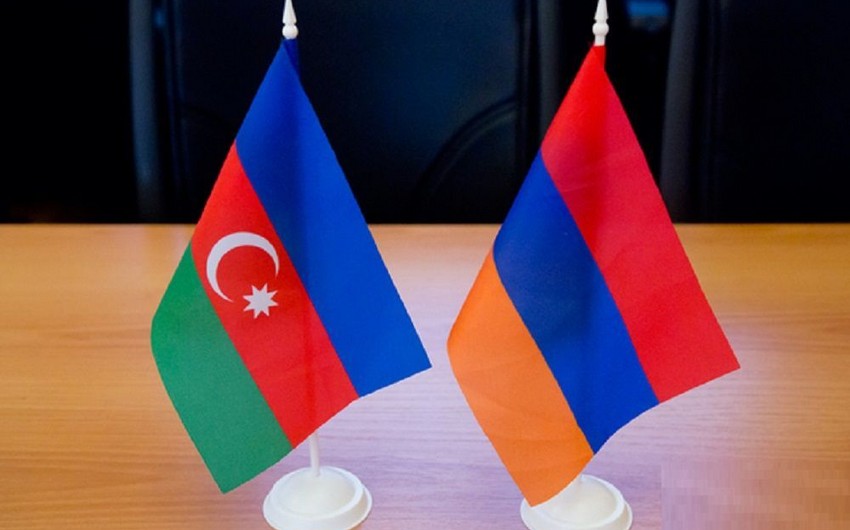In the volatile tapestry of the South Caucasus, the historical enmity between Azerbaijan and Armenia stands out as a persistent thorn in regional stability.
After the collapse of the Soviet Union in 1991, Armenia launched a military campaign against Azerbaijan that lasted until a ceasefire was reached in 1994. Armenia occupied 20 percent of Azerbaijan’s internationally recognized territories, namely the Karabakh region and seven adjacent districts. Over 30,000 ethnic Azerbaijanis were killed and one million others were expelled from their lands in a brutal ethnic cleansing policy conducted by Armenia.
Despite a ceasefire, the conflict remained frozen, with occasional flare-ups, until the dramatic escalations in 2020. Armed Forces of Azerbaijan launched a counter-offensive operation in response to Armenia’s yet another large-scale military attack on Azerbaijani Army positions and civilian settlements. Thus, Azerbaijan liberated its territories and restored its territorial integrity and sovereignty as a result of 44 days of Patriotic War in 2020 and local antiterrorism measures taken by the Azerbaijan Army in 2023.
Throughout these turbulent decades, Azerbaijan, under the leadership of President Ilham Aliyev, has consistently advocated for peace, emphasizing the restoration of its territorial integrity as a pathway to lasting stability in the region. Aliyev's administration has worked tirelessly to keep the dialogue open, despite the historical grievances and the recent memories of conflict. The Azerbaijani leader's recent statement, declaring that the two nations are "closer than ever" to a peace treaty, reflects a sincere commitment to turning the page on a history of strife.
Azerbaijan's approach to peace is intricately linked to its broader regional strategy, emphasizing economic development, infrastructure modernization, and integration into the global economy as pillars of stability and prosperity. Since regaining independence, Azerbaijan has leveraged its energy resources to fuel not just its economy but also its diplomatic initiatives. The contrast with Armenia, which has faced significant economic challenges and isolation, highlights the divergent paths the two nations have taken. Azerbaijan's focus on development and its advocacy for peace are intertwined, with the former seen as a vehicle to promote regional cooperation and reduce tensions.
President Aliyev's positive role extends beyond the battlefield and the negotiating table. Under his leadership, Azerbaijan has seen significant strides in modernization and development. The nation's strategic use of its oil and gas revenues has spurred growth in various sectors, positioning Azerbaijan as a key player in regional energy markets and beyond. This economic strength has afforded Azerbaijan the ability to pursue a robust foreign policy, advocating for peace and stability in the South Caucasus, and diversify its non-oil economy.

Azerbaijan's call for peace is not without its demands, particularly concerning the return of territories and the demarcation of borders. However, these are framed within the context of international law and the principles of territorial integrity. The country's willingness to engage in dialogue, even after achieving military successes, underscores a preference for diplomatic solutions over continued conflict.
The international community's role in supporting these peace efforts cannot be overstated. The active involvement of global and regional actors, including NATO and the European Union, signals a recognition of the South Caucasus's importance to wider European and Asian security landscapes. The encouragement from NATO Secretary-General Jens Stoltenberg, acknowledging the progress towards peace, highlights the broader implications of a stable and peaceful South Caucasus.
The journey towards peace between Azerbaijan and Armenia, marked by decades of conflict and suffering, is now at a potentially transformative juncture. The recent positive developments signify a mutual recognition that the costs of conflict far outweigh the dividends of peace. President Ilham Aliyev's leadership has been pivotal in steering Azerbaijan towards a future that prioritizes stability, development, and regional integration over territorial disputes and historical grievances.
As both nations inch closer to a historic peace agreement, the international community must play a supportive role in ensuring that this opportunity is not squandered. The resolution of the Armenia-Azerbaijan conflict could serve as a beacon of hope for other protracted conflicts around the world, demonstrating that even the most entrenched disputes are amenable to peaceful resolution. The future of the South Caucasus hangs in the balance, and with courageous leadership and international support, peace is within reach. This moment may well define the legacy of President Aliyev and set a precedent for conflict resolution in the 21st century.
Tahir Farooq is editor-in-chief at Daily Ittehad Media Group and Pakistan Economic Net. He is also the Vice President and Chairman of the Foreign Relations Committee of Council of Pakistan Newspaper Editors (CPNE).


 https://static.report.az/photo/a53e1817-564a-3fc9-8fc8-f7454d847132.jpg
https://static.report.az/photo/a53e1817-564a-3fc9-8fc8-f7454d847132.jpg

